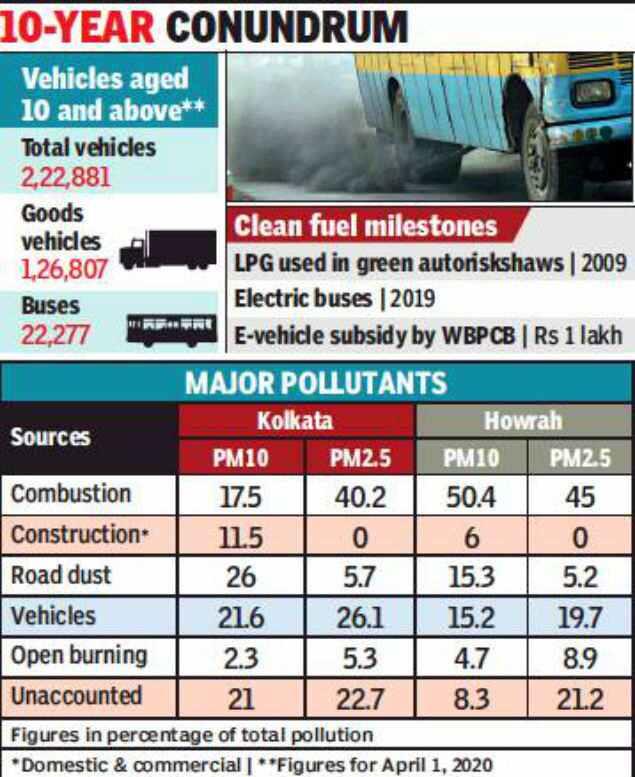News
7
Jan
2020
NGT rap: West Bengal government gauges impact of scrappage policy on transport
he state has started assessing the impact on the public transport and goods movement in the city if the scrapping age of commercial vehicles comes down to 10 years from the existing 15. The National Green Tribunal (NGT) has asked the state why it was not lowering the scrapping age to 10 to reduce the noxious fumes in the city’s ambient air.
The state has started assessing the impact on the public transport and goods movement in the city if the scrapping age of commercial vehicles comes down to 10 years from the existing 15. The National Green Tribunal (NGT) has asked the state why it was not lowering the scrapping age to 10 to reduce the noxious fumes in the city’s ambient air.
The scrapping age for commercial vehicles in National Capital region (NCR) is 10. Since Kolkata is close to Delhi in pollution, the city needs to get rid of its old diesel vehicles to avoid further damage to theambient air.
However, preliminary assessment showed that public transport and goods vehicles movement in the city would be hit hard, if the state government scrapped such diesel vehicles.
The scrapping age for commercial vehicles in National Capital region (NCR) is 10. Since Kolkata is close to Delhi in pollution, the city needs to get rid of its old diesel vehicles to avoid further damage to theambient air.
However, preliminary assessment showed that public transport and goods vehicles movement in the city would be hit hard, if the state government scrapped such diesel vehicles.
The initial findings by a state panel revealed that an enormous number of diesel vehicles would be disallowed to ply, if the scrapping age is reduced to ten years, a transport department officer said.
“The assessment revealed that 2,22, 881 commercial vehicles will attain 10 years by April 1, 2020. The number of goods vehicles attaining 10 years by that time will be 1,26,807. Number of buses that will be 10 years old is 22,277. So, the impact on public transport and goods vehicles movement will be quite telling. But keeping in mind the city’s degrading air quality, we have to reduce the city’s diesel fleet,” a Nabanna source said.
“A massive number of metered cabs, too, will have to be scrapped. Almost 94% of the metered cab fleet is plying for over 10 years.Nearly 99% of commercial vehicles are diesel-run. A large number of private vehicles are also diesel-run, thanks to the subsidy that diesel still enjoys,” said Subhas Datta, the anti-pollution campaigner.
The only option left for the state to evade lowering the scrapping age for commercial vehicles is to shift to cleaner fuels like CNG. Delhi has done this quite effectively.
“The assessment revealed that 2,22, 881 commercial vehicles will attain 10 years by April 1, 2020. The number of goods vehicles attaining 10 years by that time will be 1,26,807. Number of buses that will be 10 years old is 22,277. So, the impact on public transport and goods vehicles movement will be quite telling. But keeping in mind the city’s degrading air quality, we have to reduce the city’s diesel fleet,” a Nabanna source said.
“A massive number of metered cabs, too, will have to be scrapped. Almost 94% of the metered cab fleet is plying for over 10 years.Nearly 99% of commercial vehicles are diesel-run. A large number of private vehicles are also diesel-run, thanks to the subsidy that diesel still enjoys,” said Subhas Datta, the anti-pollution campaigner.
The only option left for the state to evade lowering the scrapping age for commercial vehicles is to shift to cleaner fuels like CNG. Delhi has done this quite effectively.
